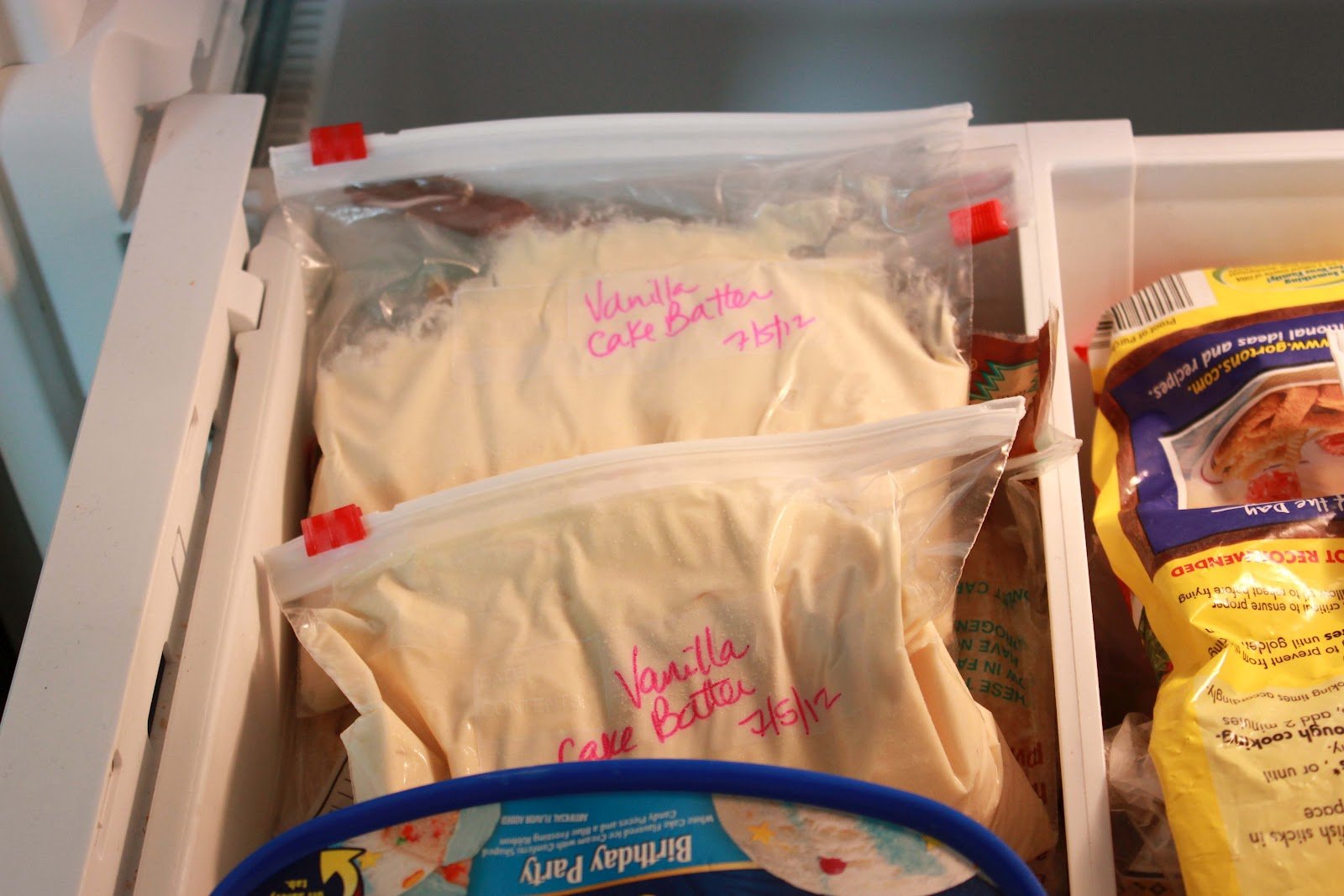Cream-based soups are a favorite of mine. Sometimes, however, we lose track of time and don’t get to enjoy them as often as we would like. Can you freeze cream-based soups? Yes.
Yes, you can freeze cream-based soups! Cream-based soups are great for freezing, as they don’t separate when thawed and don’t become grainy.
This is because of the cream’s high-fat content, which acts as a natural preservative. It is essential to keep soups made with freezing cream in an airtight container so that the soup does not absorb any unwanted smells or flavors from the freezer.
You can do this using glass jars or plastic freezer bags. You should leave enough headspace so the soup can expand when it freezes.

What Happens To Cream Soup After Freezing?
Emulsified soups made with dairy-based soups are those that contain milk or cream. Protein binding prevents water molecules from being split and fat molecules from being separated. Frosting can break these bonds and cause the parts to be separated.
The cream or milk will float to the top as the soup cools. This creates a thin layer of ice crystals which separates the other ingredients. Before freezing, stir the soup. Cream soups lose the smooth texture when frozen. This can lead to a grainy texture on defrosting. The soup will likely split if it has more fat.
How to freeze cream soups?
Although we do not recommend sour cream for freezing soups, you can still freeze cream-based soups if blended well and preserved in their original form. You must not keep them in the freezer for more than a few hours. It will be challenging to retain the soup’s fresh texture if it has a thick cream base.
- First, cool the cream soup.
- Place leftover cool cream soup in plastic freezer containers/boxes
- For soup expansion during freezing, be sure to leave extra room at the top of your containers
- Seal the containers tightly
- Place the containers in the freezer
- Before reheating, let the soup cool in the fridge overnight.

Guidelines to be followed before freezing cream soups
When freezing cream-based soups, some guidelines are essential to follow. It may be helpful in certain cases.
- You should not add pasta to cream soups. The pasta will separate from the soup when frozen.
- For freezing, it is best to leave fresh herbs out of the leftover soup. It is best to add herbs during reheating.
- Frozen potato cream soups are bad, as the potatoes can become brittle during freezing. to know how to freeze potato soup for consuming later without any issues read this post now.
- If you want to include vegetables in cream soups, don’t undercook green vegetables like beans or peas. To avoid vegetables becoming mushy, it is best to cook them while they’re reheating.
Other than these few things, you can store any cream soup in your freezer by following these instructions.
How To Defrost Cream Soups?
You must not keep cream soups in the freezer for more than three months. To ensure you don’t miss the deadline, mention the date. To avoid getting sick, you should throw it out if kept for more than three months.
You can freeze the cream soup if you do not have time to make it. You must complete this process 24 hours before the soup is ready to be eaten.
Slowly defrost the soup, not quickly. Slowly defrosting the liquid will prevent it from separating as much as possible, and you’ll have less work.
Transfer the soup from the freezer directly to the refrigerator. Allow it to thaw in the refrigerator for at most eight hours.
When ready to heat the soup, check to ensure it is not separated. Keeping it in clear containers is a good idea.
You can heat it in the microwave or stove if it hasn’t separated. We recommend heating it on the stove to combine all the ingredients if it has separated.
Use a spoon to stir the soup every few minutes until it regains its original consistency and appearance.
It is possible to heat separated soup in the microwave. However, it is important to keep the timer running for at least twenty seconds before you stir it again. Keep the spoon in the microwave until you turn it off again.
What are the Benefits of Freezing Cream-Based Soups?
Soups can be an excellent way to use leftover meat and vegetables, which are filling and satisfying. A bowl of delicious, warm soup is something everyone will love.
Sometimes, however, you may end up with more soup than your stomach can handle. You might be wondering if you can freeze cream-based soups.
You can freeze cream-based soups, which is a good thing! These soups have many benefits. Here are eight great benefits of freezing cream-based soups:
- This is a great way of saving leftovers.
- The soup can be divided into portions, making it easy to grab and go when time is short.
- Soup frozen in the freezer can last up to six months, so it is always handy.
- You can use frozen soup for quick lunches, weeknight meals, or even on the go. Simply defrost, then heat!
- Cream-based soups freeze well and retain their flavor after being thawed.
- Frosting cream-based soups help prevent them from going bad in the refrigerator.
- It is possible to make large batches of soup and freeze smaller portions for later consumption.
- You can freeze soup to use leftover ingredients before they turn bad.
Ways To Use Frozen Cream-Based Soup
Cream-based soups can be a comforting and luxurious addition to any meal. They can be challenging to keep fresh and can often go bad before you’re even able to finish them. Freezing cream-based soups in small portions is a great option. This will allow the soup to be fresh and delicious.
You can use frozen cream soup in many different ways. These are five of our favorites:
- Soups and Stews: Use frozen cream-based soup as a base for soups and stews. Add your favorite ingredients to the soup after thawing.
- Sauce: Use frozen cream-based soup for sauces on pasta, chicken, and fish. The soup should be thawed and heated until it is hot. Serve over your favorite protein.
- For omelets: A frozen cream-based soup makes an excellent filling for omelets and quiches. Mix the soup with your favorite egg recipe.
- For gratins: You can use frozen cream-based soup instead of cream or milk to make gratins and casseroles. Thaw the soup, and then use it according to your recipe.
- Dip: Use frozen cream-based soup as a dip with bread, crackers, or vegetables. Serve the soup thawed with your favorite dipping food.

FAQ’s
Can heavy cream be frozen in soup?
Soups with milk or cream, such as chowders, won’t keep well in the freezer. They tend to get a grainy texture when frozen and separate when defrosted.
How can you prevent cream soup from separating?
Stabilizing the milk emulsion is possible with starches like cornstarch or flour. This will prevent it from separating. One common way to thicken soups or sauces is to add roux before adding milk. This alters the liquid’s composition and prevents it from becoming frothy.
How long can cream-based soups last?
Creamy soups will likely last three or more days, while seafood soups will last two or three days.


We are baking experts and connoisseur of food with decades of cooking experience to cook and bake a variety of scrumptious food item to awaken the taste buds of people who eat our baked delights.
With our gumption, alacrity along with astute acumen to pick the authentic and best quality ingredients from across the world to make the scrumptious recipes which soothes the taste buds of eater has made him the name on which people can count on when it comes to cooking advice, world class meals and cuisines native to the different cities of world.
Our chefs unique ability improvise and make baked dishes with different raw produce and ingredients in less time which are delicious and relished by the guests has made kooky bakes leader in the arena of baking and serving mouth watering food.

